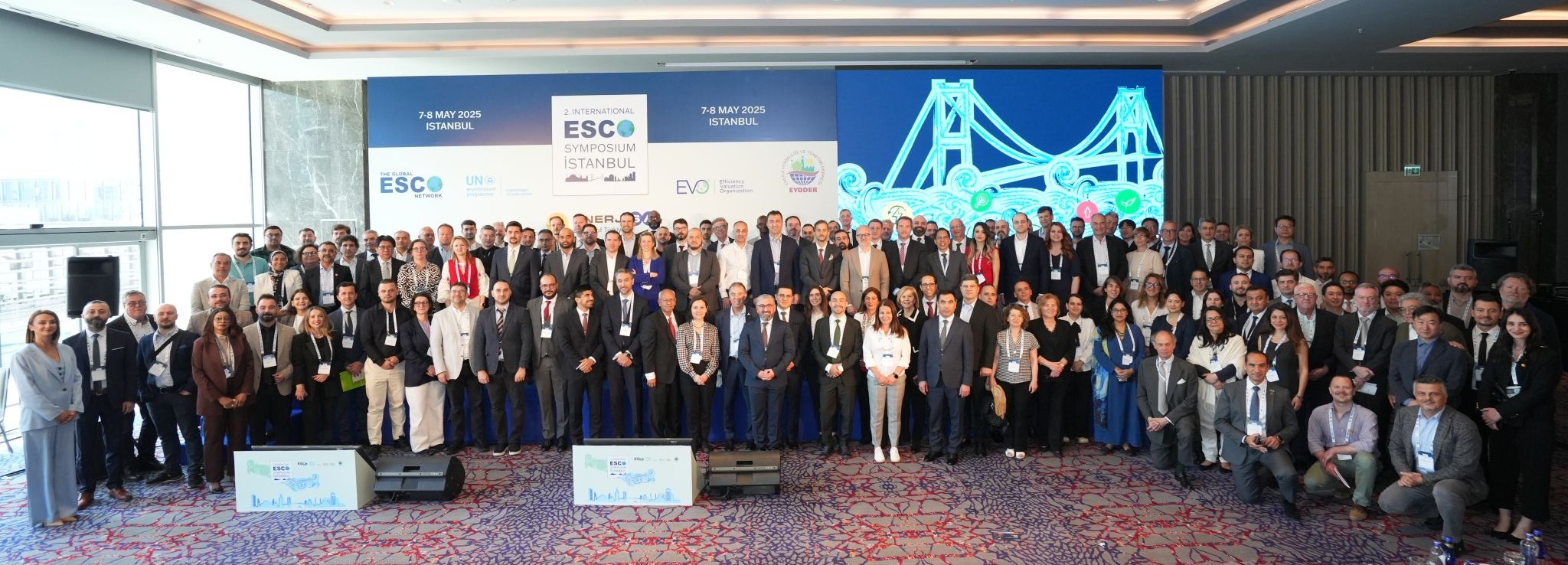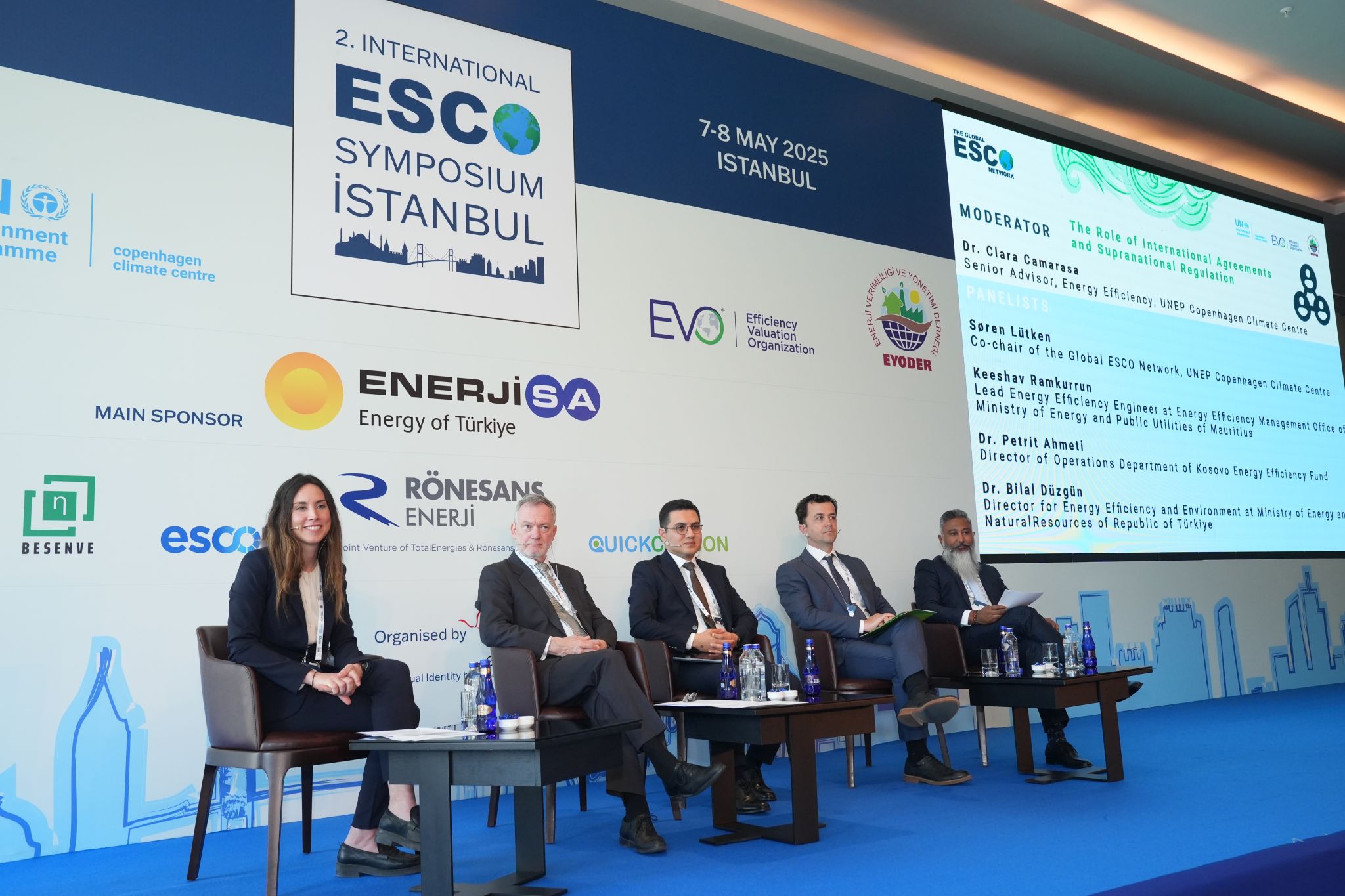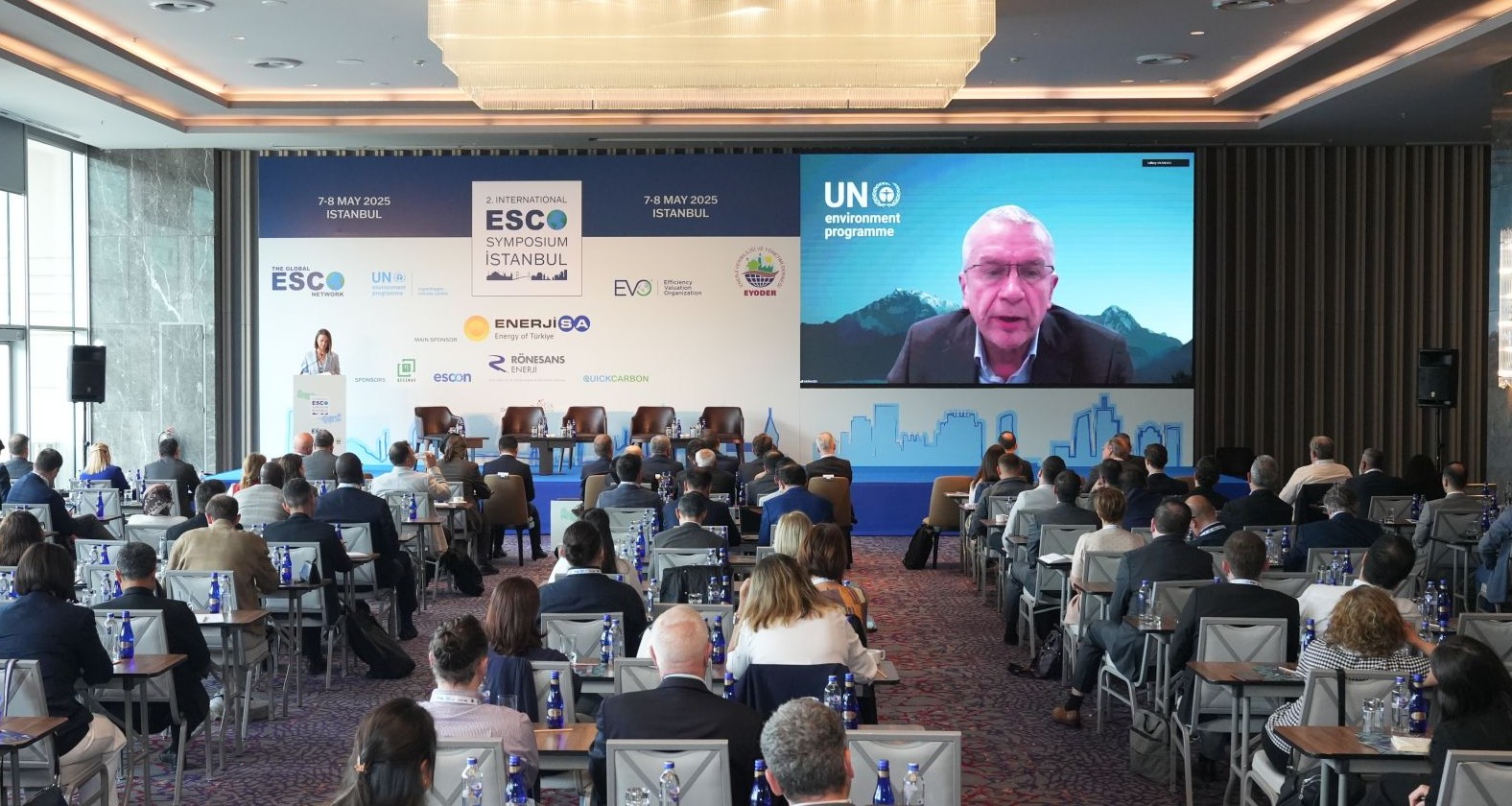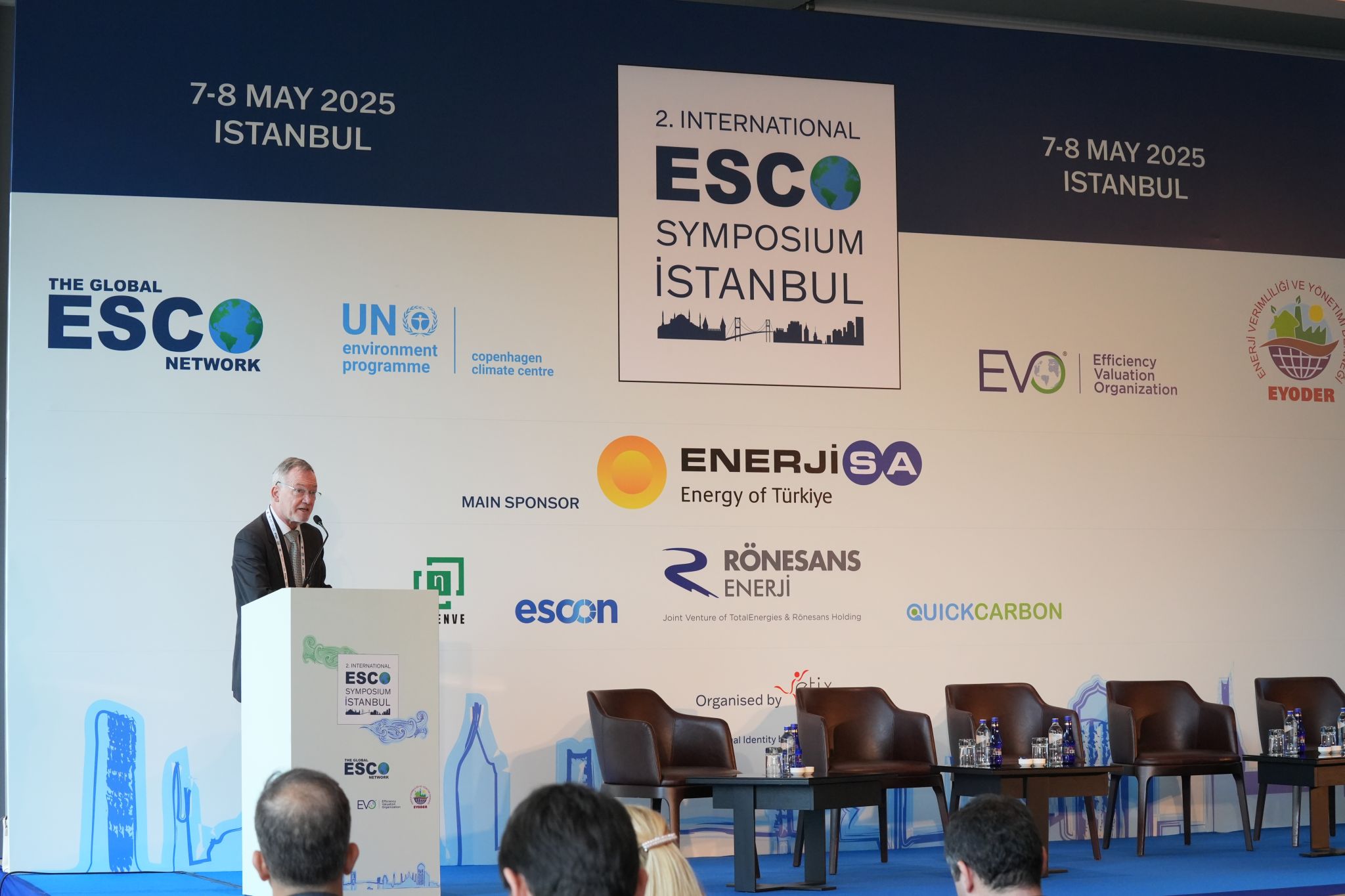This week, the 2nd International ESCO Symposium underscored the importance of energy service companies (ESCOs) in financing energy efficiency projects.
ESCOs utilize energy savings to pay for the cost of equipment and infrastructure, making them a vital component in the transition to a low-carbon future.
The symposium, organized in cooperation with the Global ESCO Network, was held in Istanbul from May 7 to 8, and successfully brought together global leaders in the energy services sector. Hosted by the Energy Efficiency and Management Association (EYODER), The Efficiency Valuation Organization and the UNEP Copenhagen Climate Centre, the event saw participation from around 200 experts and stakeholders from 42 countries.
The Global ESCO Network, co-managed by the UNEP Copenhagen Climate Centre, aims to inspire governments to scale up the contribution of ESCOs to meet the Paris Agreement goals.
The symposium featured opening speeches from notable figures, including Türkiye’s Deputy Minister of Energy and Natural Resources Ahmet Berat Çonkar, UN Development Coordination Office Regional Director for Europe and Central Asia Gwi-Yeop Son, and UNEP Climate Change Division Director Martin Krause.
Analyzing the ESCO markets
A new publication by the UNEP Copenhagen Climate Centre, “The Global ESCO Market 2025,” provides a comprehensive overview of the status, challenges, and opportunities in the ESCO sector across more than 25 countries. The report highlights the uneven maturity of ESCO markets globally, with significant activity concentrated in countries like the United States, China, and several EU member states. It also emphasizes the need for stronger policy frameworks, enhanced financing tools, and capacity building to support the growth of ESCOs in emerging markets.
Throughout the event, experts discussed best practices in energy efficiency, renewable energy generation, the impact of international regulations on energy efficiency policies, cooperation with public and local authorities, and access to finance. The second day of the symposium included B2B meetings alongside panel sessions, fostering collaboration and knowledge sharing among participants.
The successful symposium highlighted the potential of ESCOs in climate action, particularly in financing energy efficiency projects. The Global ESCO Network continues to play a pivotal role in promoting the integration of ESCOs into global climate initiatives, ensuring that energy efficiency remains a cornerstone of sustainable development.







